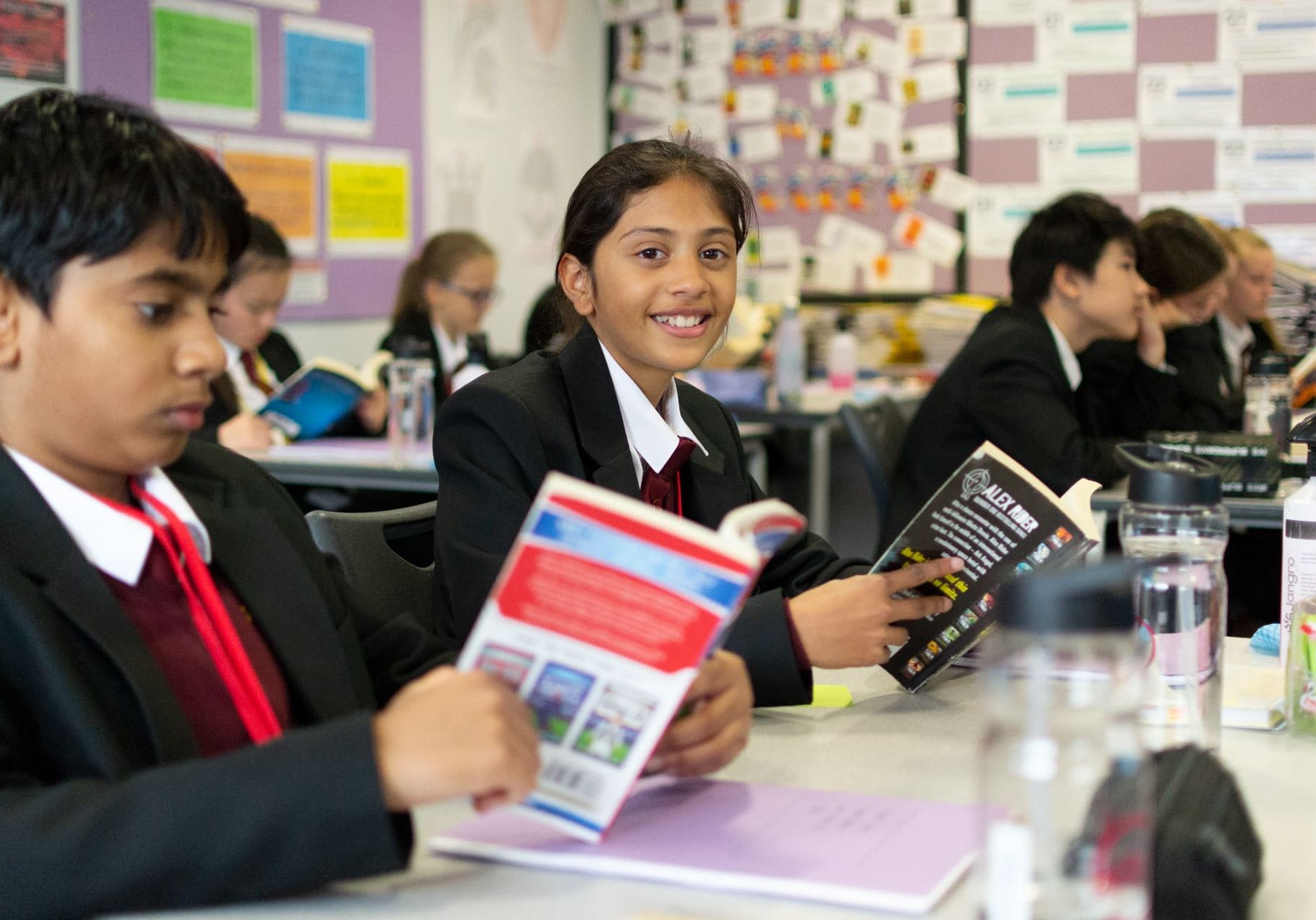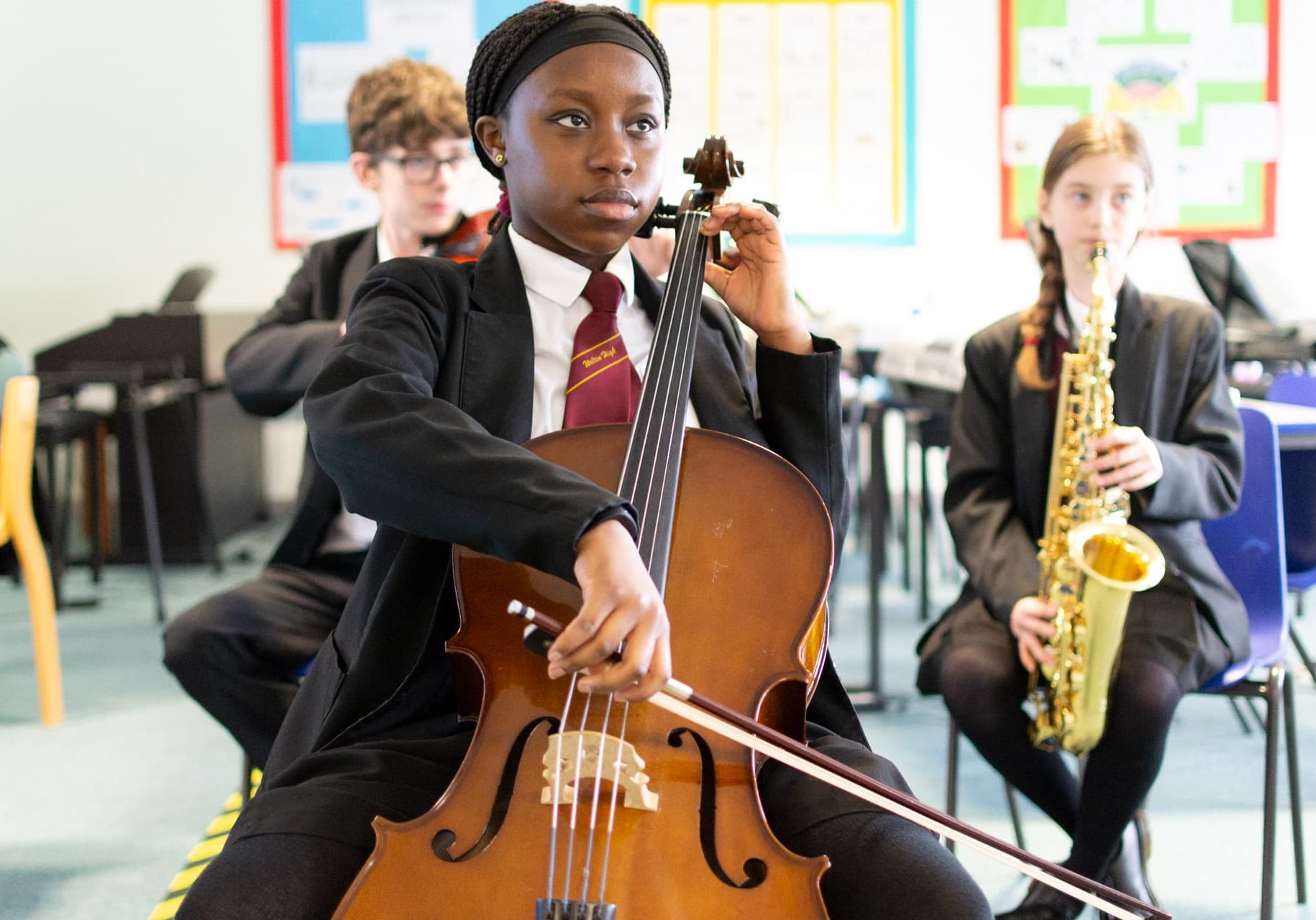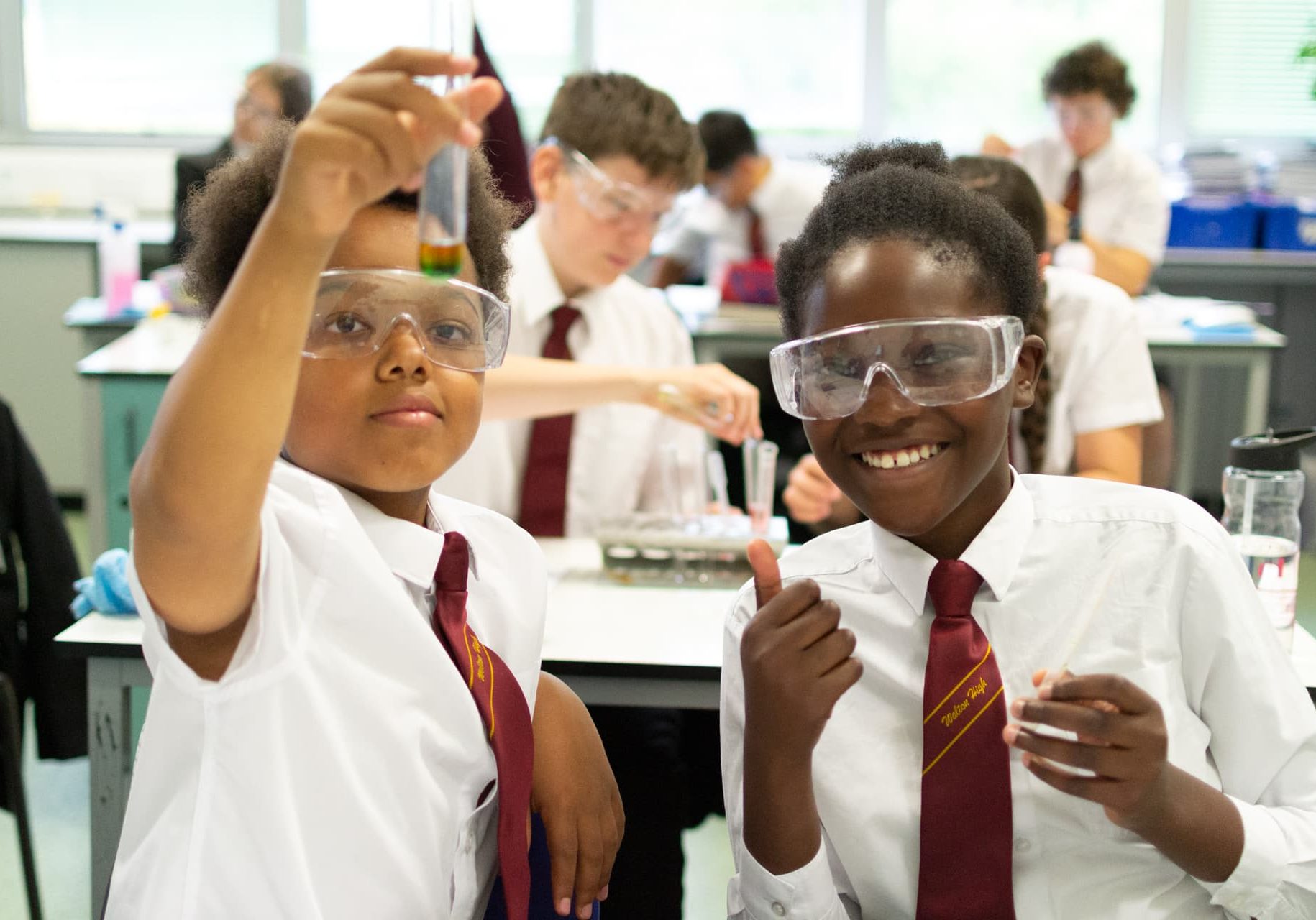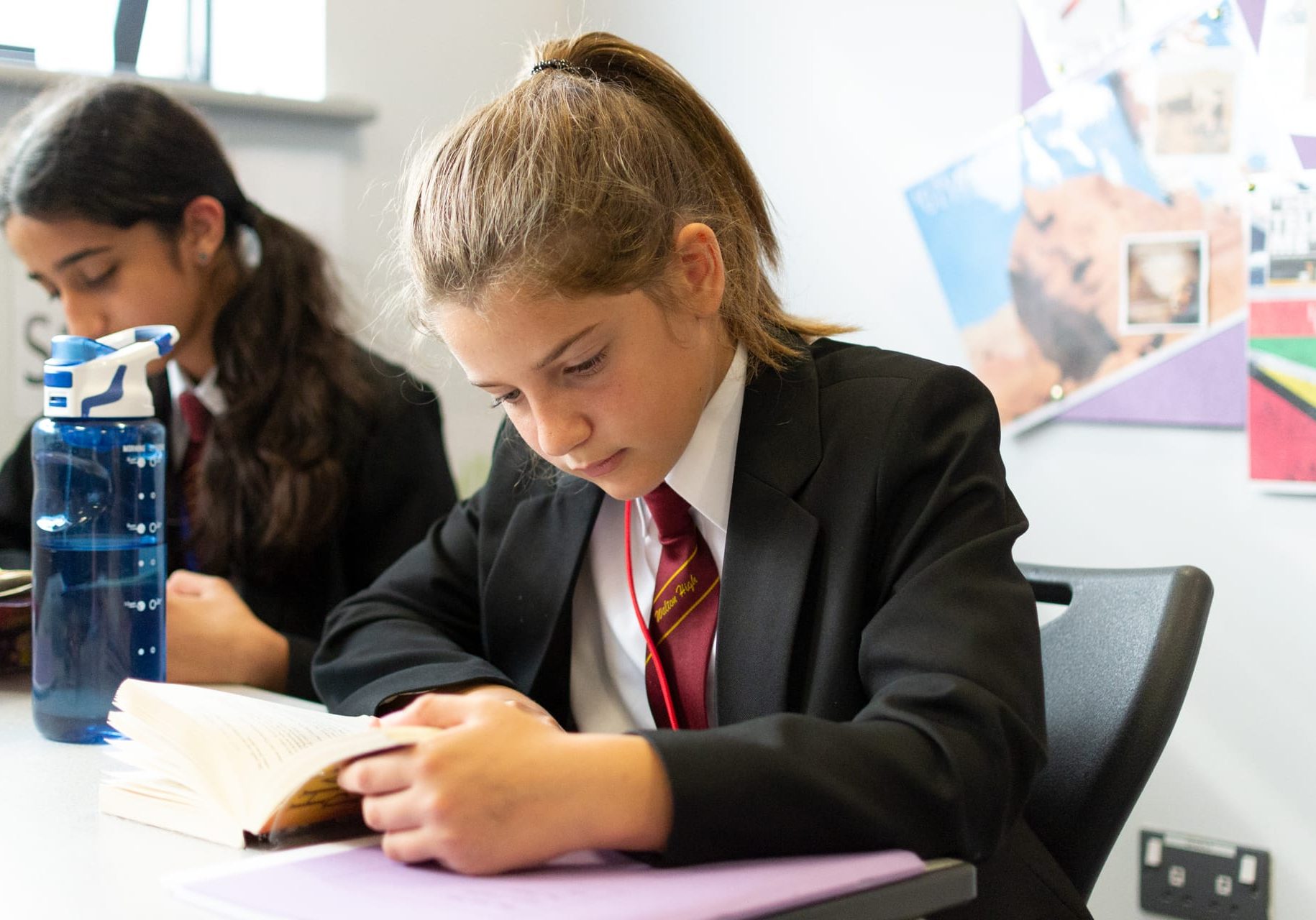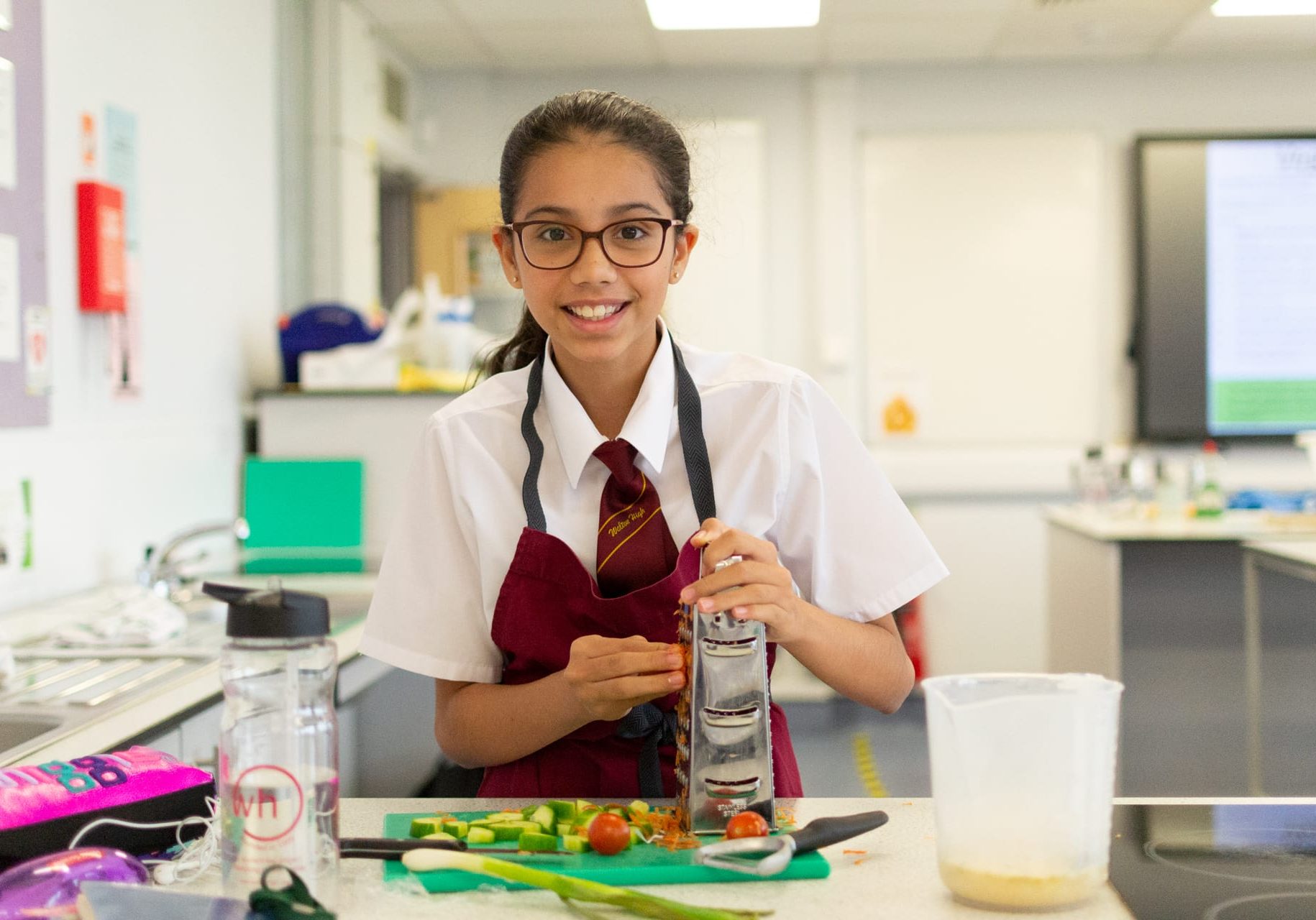Schools
International
Business & Enterprise
Linked Documents
Sociology
Sociology explores the way in which society works, it is the systematic study of the way people live and behave. Students will develop a wide range of knowledge and understanding about society, and how sociologists study and understand its structures, processes and issues.
Sociology is exciting, interesting and relevant to students’ lives. Both the Key Stage 4 and Key Stage 5 programmes of study encourage students to take a questioning approach to evidence and issues, thus developing their critical, evaluative skills.
AQA GCSE Sociology – Course Overview
Term 1a
(Autumn 1)Term 1b
(Autumn 2)Term 2a
(Spring 1)Term 2b
(Spring 2)Term 3a
(Summer 1)Term 3b
(Summer 2)
Year 9 Paper 1 – Studying Society (Sociological Methods)
This unit will explore the distinctiveness of the sociological approach to the study of society. Learners will gain an understanding of social structures, social processes and will consider a range of contemporary social issues. Throughout the unit, learners will explore the significance of the sociological research process and consider a range of methodological tools available to sociologists. This unit also includes a practical element, in which learners are invited to participate in a sociological research project.Paper 1 – Families and Households
This unit will explore definitions of ‘family’ and will consider the presence of diverse forms of the family in Britain today. Learners should understand that an individual might live in many different family situations during a lifetime; and will be able to explain important changes that are taking place in family structures. Learners will also explore the range of roles and authority relationships that may exist within the family. This unit will also consider key sociological approaches to the study of the family.
Year 10 Paper 1 – Education
This unit will focus on a range of aspects of Education including; the development and structure of the education system; current debates associated with influences on educational achievement; the role and function of education in contemporary society. Learners will also explore education as a political issue and will consider why key education reforms have been made and be able to evaluate such reforms.Paper 2 – Crime and Deviance
This unit will explore a range of sociological considerations with regards to the study of crime and deviance including; the social distribution of crime; how individuals are encouraged to conform to societal expectations and laws; a range of different sociological explanations of criminal and deviant behaviour; the significance of criminal and deviant behaviour for victims, communities and society as a whole.
Year 11 Paper 2 – Social Inequality
Learners will consider the nature of different forms of stratification in society and will describe and explain the ways in which life chances are influenced by differences in wealth, income, power and status. Learners will be able to describe and explain the relationship between such inequalities and social factors such as class, gender and ethnicity. The unit will also consider different sociological explanations of poverty and will enable learners to critically evaluate these explanations.REVISION
Assessment:
The course is assessed via external examination – comprising of two exam papers (each worth 50% of the qualification) to be taken at the end of Year 11. Each examination is one hour and forty five minutes in length.
Paper 1 includes the following topics; Families & Households and Education. In this examination all questions are compulsory and methods questions are included in relation to each topic.
Paper 2 includes the following topics; Crime & Deviance and Power and Social Inequality. In this examination all questions are compulsory and methods questions are included in relation to each topic.
AQA A-Level Sociology – Course Overview
Course Aims – Learners will:
- Acquire a knowledge and a critical understanding of contemporary social processes and social changes
- Appreciate the significance of theoretical and conceptual issues in sociological debate
- Understand and evaluate sociological methodology and a range of research methods
- Develop skills that enable them to focus on their personal identity, roles and responsibilities within society
- Develop a lifelong interest in social issues
Year 12
The modules delivered during Year 12 are externally assessed via two examinations – the examinations are taken at the end of Year 12.SCLY1 – Families & Households
Assessment: 1 hour examination
Unit weighting: 40% of AS and 20% of A2
Throughout the unit, learners will explore a range of key issues associated with families and households including; the relationship of the family to the social structure and social change (this has particular emphasis on the economy and state policies); the diversity of contemporary family and household structures; the nature and extent of changes within the family (such as gender roles, domestic labour and power relationships); The nature of childhood, and changes in the status of children in the family and society; demographic trends in the UK since 1900.SCLY2 – Education and Sociological Methods
Assessment: 2 hour examination
Unit weighting: 60% of AS/30% of A2
The unit will begin through an examination of a range of key issues and debates associated with the sociology of education, including; sociological perspectives regarding the role and purpose of education; differential educational achievement of social groups by social class, gender and ethnicity in contemporary society; relationships and processes within schools, and the significance of educational policies.
Learners will then have the opportunity to gain an appreciation of the application of sociological research methods to the study of education, examining methodological issues such as; quantitative and qualitative methods of research (their strengths and limitations); research design; the distinction between primary and secondary data, and between quantitative and qualitative data and the theoretical, practical and ethical considerations influencing choice of topic, choice of method(s) and the conduct of research.
Year 13
The modules delivered during Year 13 are externally assessed via two examinations – the examinations are taken at the end of Year 13.SCLY3 – Mass Media
Assessment: 1 hour 30 minute examination
Unit weighting: 20% of A2
This unit will explore a range of key issues associated with the mass media including; the relationship between ownership and control of the mass media; the mass media, globalisation and popular culture; the processes of selection and presentation of the content of the news; media representations of age, social class, ethnicity, gender, sexuality and disability; The relationship between the mass media, media content and presentation, and audiences; the new media and their significance for an understanding of the role of the media in contemporary society.SCLY4 – Crime & Deviance and Sociological Theory & Methods
Assessment: 2 hour examination
Unit weighting: 30% of A2
The unit will begin with an examination of a range of key issues and debates associated with the sociology of crime and deviance, including; Different theories of crime, deviance, social order and social control; the social distribution of crime and deviance by age, ethnicity, gender, locality and social class (including recent patterns and trends in crime); Globalisation and crime in contemporary society (the mass media and crime, green crime, human rights and state crimes); crime control, prevention and punishment; victims, and the role of the criminal justice system and other agencies; the sociological study of suicide and its theoretical and methodological implications.
Learners will then have the opportunity to explore the connections between sociological theory and methods to the study of crime and deviance. Examining aspects of sociological theory such as; consensus, conflict, structural and social action theories; the concepts of modernity and post-modernity in relation to sociological theory; the nature of science and the extent to which sociology can be regarded as scientific; the relationship between theory and methods and the relationship between sociology and social policy.

